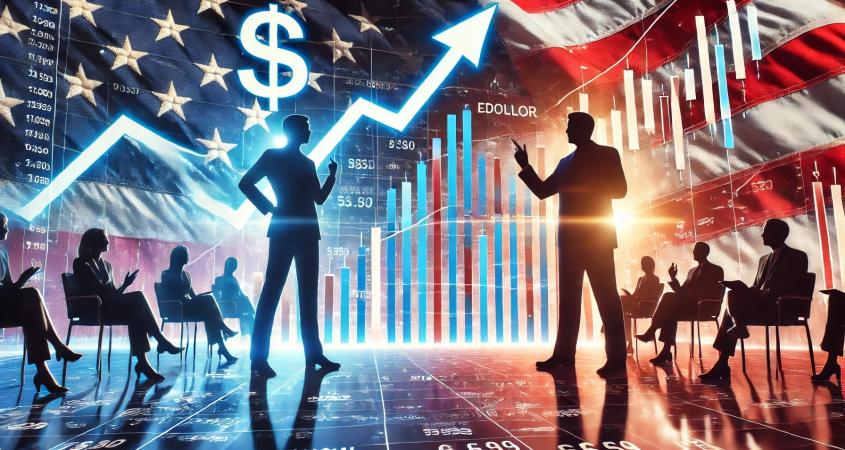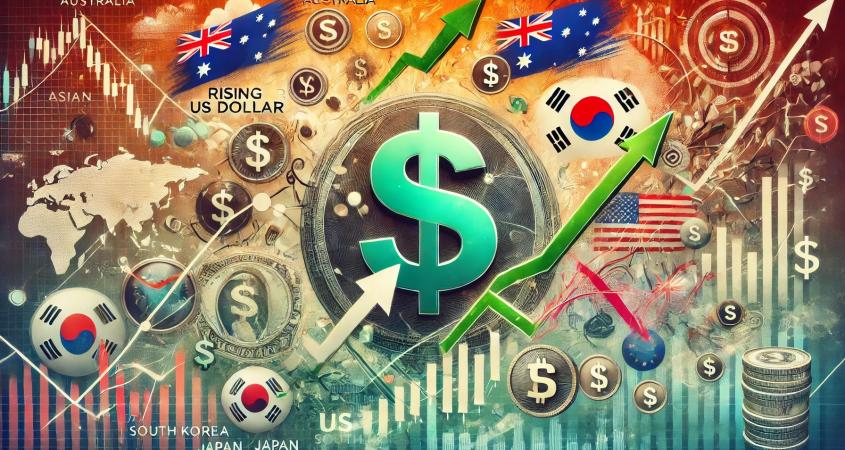US Dollar Rises Driven by Expectations of Trump's Election Success

US Dollar Rises Driven by Expectations of Trump's Election Success, The US dollar saw an increase in Asian trading, buoyed by growing bets on former President Donald Trump winning the upcoming US presidential election, following his strong performance in the first debate against current President Joe Biden.
The dollar index rose by 0.2% on Friday before easing slightly, still heading for its sixth consecutive week of gains. This came after Biden stumbled during the debate, raising doubts about his ability to compete with Trump in the November presidential election.
Carol Kong, a strategist at Commonwealth Bank of Australia in Sydney, stated, "Markets believe Trump is the winner of the debate based on reactions so far, but it’s still too early to draw this conclusion."
Meanwhile, Treasury yields rose and US stock futures recorded slight gains. The Mexican peso fell by around 1% before trimming its loss to 0.4%, while Asian currencies remained largely stable.
Impact of Trump-Biden Debate Asian stock markets experienced positive sentiment during the debate, with most regional indices rising. Chinese indices recovered their early losses and avoided entering a technical correction zone, as traders viewed the absence of tough comments on China in the debate as a positive surprise. The Hang Seng Index of Chinese companies rose by 0.8%.
In this context, Redmond Wong, a market strategist at Saxo Capital Markets, commented, "It’s a positive surprise for this part of the world, but only moderately so." He noted that the political consensus on dealing with China depends not only on the presidential candidates but also on Congress, adding that there is a likelihood of escalating tensions in the coming months.
Shen-Yao Ng, investment director at abrdn, remarked that the absence of tough comments on China "might have been surprising, but anti-China sentiment holds a bipartisan stance, so there might not be much for them to attack each other on."










